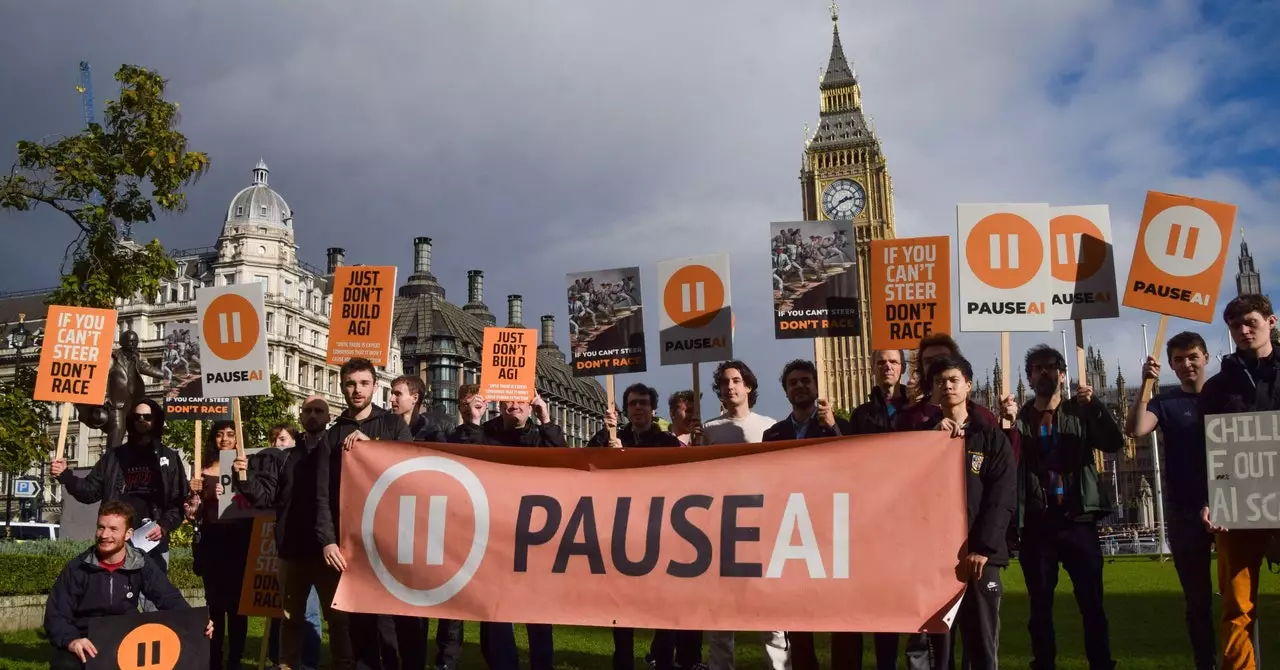The advent of advanced AI has sparked concerns among activists and researchers alike. The popularization of the idea that highly developed AI systems could pose a risk to human existence has raised alarm bells for many. This fear was inspired by works such as ‘Superintelligence’ by philosopher Nick Bostrom.
Joseph Miller, the organizer of PauseAI’s protest in London, was moved to action after the launch of OpenAI’s Chat-GPT 3 language model in 2020. This event made him realize that the dangers of AI were not just a distant future concern but a pressing issue of the present. Miller’s involvement in AI safety research led him to become a key figure in the PauseAI movement.
While many of PauseAI’s founders have ties to the effective altruism community, they are eager to expand their reach beyond philosophy. Director of Pause AI US, Holly Elmore, envisions a movement that includes artists, writers, and copyright owners who are directly impacted by the rise of AI systems. The lack of consent from companies in the development of AI models is a driving force behind their activism.
The impact of AI on creative fields such as art has already been felt by many artists whose livelihoods have been affected by AI-generated works. This immediate threat underscores the importance of taking action to pause and reflect on the direction of AI development. PauseAI advocates for a holistic solution that addresses all potential harms of AI technology.
Protest movements like PauseAI have the potential to shape the trajectory of new technologies. Gideon Futerman, a long-time protester with the group, believes that public pushback can influence the adoption of technologies, citing the examples of genetically modified organisms and nuclear power. By engaging with civil servants and raising awareness, protest movements can bring attention to the ethical implications of AI development.
The leaders of Pause AI emphasize the importance of moderate and ethical activism. While the group advocates for change, they do not condone disruptive or violent actions. The decision to focus on peaceful protests and education reflects their commitment to ethical activism and trustworthiness.
The founder of Pause AI is hopeful that the movement can overcome the stereotype of being labeled as “AI doomers.” By advocating for a pause and reflection on AI development, the movement aims to show that they are not giving up on humanity but rather seeking to ensure a safer and more ethical future.
The PauseAI movement represents a growing concern among activists and researchers about the ethical implications of AI technology. By advocating for a pause in development and reflecting on the potential risks and benefits of AI systems, the movement seeks to engage a wide range of stakeholders in shaping the future of AI. Through peaceful protests, education, and ethical activism, PauseAI aims to be a catalyst for change in the AI industry.


Leave a Reply